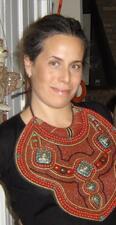Philanthropy and Volunteerism
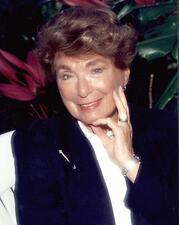
Geri M. Joseph
Geri M. Joseph, a pioneer in the acceptance of women in journalism and politics, was a prize-winning newspaper reporter, an American Ambassador to the Netherlands during the Carter administration, and the first woman to be elected to several business boards in Minnesota.
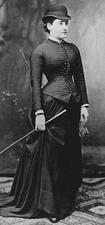
Juedischer Frauenbund (The League of Jewish Women)
Founded in 1904, The League of Jewish Women pursued secular German feminist goals while maintaining a strong sense of Jewish identity. The League supported vulnerable women through practical social reforms while fighting for political power within the German Jewish community. It saw employment opportunities as essential to women’s economic, psychological, and emotional independence.
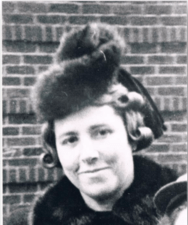
Irma Rothschild Jung
Irma Rothschild Jung, a native of Randegg, Baden, Germany, was born on July 1, 1897, and until her death close to a century later, dedicated her substantial energies to pioneering Jewish communal programs in aid of the needy. Her leadership and influence were deeply felt in the broader Jewish community by the countless individuals, young and old, who benefited from her generous spirit.
Dorothy C. Kahn
During the Great Depression, Dorothy C. Kahn helped pioneer social work as a service provided by the government to all who needed it. Kahn developed, implemented, and advocated for social welfare programs and policies whose underlying principles upheld her deepest beliefs about what social welfare could mean in a democracy.
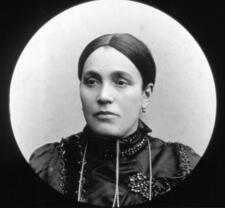
Taube Kaplan
Taube Kaplan (the Greene Rebitzin) was the principal fundraiser and founder of the Hebrew Maternity Ward, founded in 1916 in the Plateau-Mont Royal neighborhood of Montréal, Quebec. Her efforts contributed to a reduction in maternal and infant mortality in Montreal’s Jewish community. Kaplan also raised funds for the establishment of the Jewish General Hospital, which opened its doors in 1934.
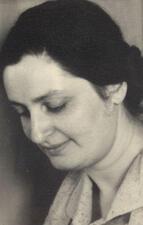
Hannah Karminski
During the mid-1920s and the 1930s in Germany, Hannah Karminski served as secretary of the League of Jewish Women and, from 1924 to 1938, as editor of its newsletter. After the forced liquidation of the League in 1938, Karminski remained in Germany and continued her work in the Reich Association of Jews in Germany, assisting with the kindertransports and welfare. She was deported to Auschwitz and murdered in 1942.
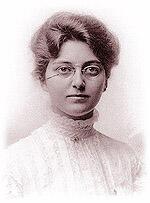
Rhoda Kaufman
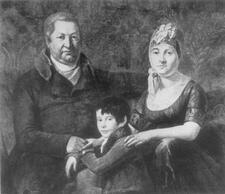
Chaile Raphael Kaulla
Chaile Raphael Kaulla was the most influential Jewish woman entrepreneur and one of the last Court Jews in eighteenth-century Germany. A devout Jew, Kaulla supported both Jewish and Christian poor people, founded a hostel for Jewish travelers, and in 1803 donated a bet midrash, library, and funding for three rabbis to her town of Hechingen. The Austrian Emperor honored Kaulla in 1807 and she and her family were allowed to live in Stuttgart with rights equal to those of Christian citizens.
Carol Weiss King
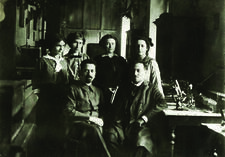
Cecilia Klaften
Cecylia Klaften, a pedagogue and a civic activist from Lvov (Galicia/Eastern Lesser Poland), implemented social reform projects and especially promoted the founding of vocational schools for women in interwar Poland. In the 1920s she was one of the founders of the Jewish Women’s Association and the WIZO Jewish Women’s Organization for Pro-Palestinian Work in Lvov. In the 1930s she was politically active for Lvov’s City Council.
C. Marian Kohn
A product of the Progressive Era and conservative Philadelphia German Jewish society, C. Marian Kohn was a social worker and tireless advocate for working women in the early twentieth century.
Esther Loeb Kohn
Esther Loeb Kohn helped bridge the gap between Chicago’s volunteer and professional social workers and spent thirty years running the Hull House settlement whenever founder Jane Addams was away on her frequent travels.
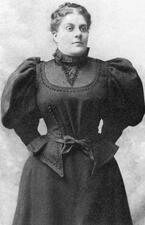
Rebekah Bettelheim Kohut
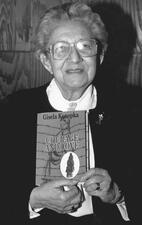
Gisela Peiper Konopka
Berlin-born Gisela Konopka built an international reputation as a group social worker and expert on youth issues. Lauded for her involvement in the rebuilding of social services and education in post-war Germany and beloved by her students at the University of Minnesota, Konopka received more than 42 awards in her lifetime.
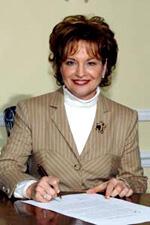
Julia Koschitzky
An activist, philanthropist, and leader of Canadian and world Jewry, Julia Koschitzky was born in Cardiff, Wales, the daughter of Max Podolski and Elli (Moses) Podolsk. The family relocated to Canada in 1949, eventually settling in Toronto in 1956. Julia and her husband Henry Koschitzky became involved in communal leadership and philanthropy, specifically in Jewish education and social welfare, and she took on active roles in Jewish affairs both in Toronto and around the globe.
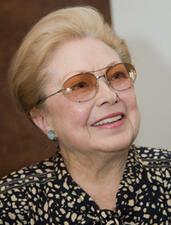
Mathilde Krim
Ilona Kronstein
Ilona (Ili) Kronstein was an artist and graphic designer. In the 1930s she focused on her artistic training, working first as a graphic artist, before working in her own studio. Her work, which was not exhibited in her lifetime, was rediscovered in the late 1990s and exhibited in Vienna at The Jewish Museum.
Matilda Steinam Kubie
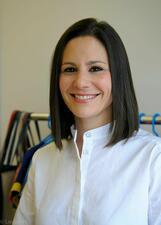
Melissa Kushner
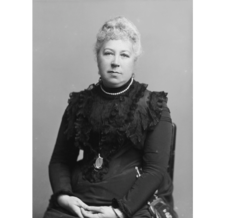
Constance Rothschild, Lady Battersea
Constance Rothschild Lady Battersea was a link between English and Jewish feminism, as she convinced upper- and middle-class Anglo-Jewish women to join English feminist groups such as the National Union of Women Workers and encouraged them to create Jewish women’s organizations, such as the Union of Jewish Women and the Jewish Association for the Protection of Girls and women, which allied themselves with the women’s movement.
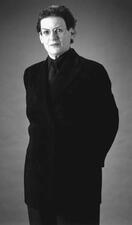
Phyllis Lambert
Phyllis Lambert is a Canadian architect and philanthropist. After receiving her M.S. in architecture in 1963, she established herself as a leader in urban conservation and public architecture. She has received many awards and honors, including the Gold Medal from the Royal Architecture Institute of Canada in 1991—Canada’s most prestigious architectural award.
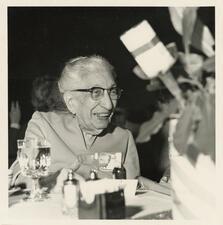
Sara Landau
Sara Landau was an accomplished twentieth-century economist who paired her scholarship with inexhaustible volunteerism in local and national organizations. Throughout her career in academia and service, Landau exemplified a category of economically independent middle-class Jewish women in America who both developed their own careers and devoted their energy to volunteer efforts, especially on behalf of their fellow Jews.
Tillie Leblang
Tillie LeBlang was known as a businesswoman, philanthropist, and mother. With her husband and daughters, LeBlang created a multi–million–dollar box office that transformed the way Broadway shows sold tickets. When her husband, Joseph, died in 1931, she took control of the family business and continued to manage it until just a few months before she died.
Adele Lewisohn Lehman
Adele Lewisohn Lehman was a significant figure in the history of New York City philanthropy who was primarily involved in causes benefiting disabled people and children. A donor and fund-raiser, she also served as an administrator or board member for many agencies, including the East Side Free School for Crippled Children and the New York Board of Charities.
